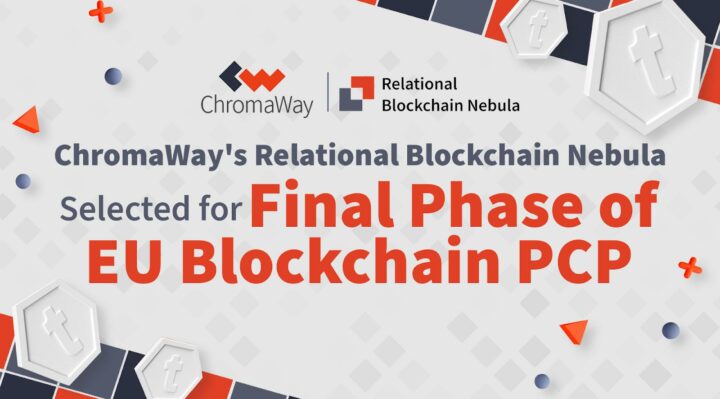The Relational Blockchain Nebula Selected for Final Phase of EU Blockchain PCP


ChromaWay has been chosen as one of three companies to advance to Phase 2B, the final phase of the European Commission’s Blockchain Pre-Commercial Procurement (PCP).
The ChromaWay technology that underpins the Relational Blockchain Nebula offers several technical advantages crucial for establishing secure blockchain services for the EU. These include low environmental impact, enhanced security through the programming language Rell, and the application of years of database optimization research which gives the RBN the ability to handle complex queries with improved performance. The innovative Nebula architecture allows for expansive scalability, ensuring that companies across the EU can access affordable blockchain services without high transaction fees or slow processing speeds.
In the final phase of the program, Relational Blockchain Nebula will undergo technical field testing and set the stage for interoperability with the wider European Blockchain Services Infrastructure (EBSI), including self-sovereign digital identity (SSI) and verifiable credentials (VC).
By the end of Phase 2B, ChromaWay will launch the first two decentralized applications built on RBN: the Digital Product Passport (DPP) and Intellectual Property Rights Marketplace (IPR). The DPP aims to reduce waste and promote sustainability in the textile industry, while the IPR Marketplace provides a transparent platform to register and trade IP assets such as patents, trademarks, and copyrights.
These decentralized applications are designed to streamline compliance, foster innovation, and promote trade within the EBSI ecosystem while showcasing blockchain technology’s potential to create a more transparent and sustainable economy. The long-term vision of the RBN is to enable a vibrant, interoperable ecosystem of blockchain-based services developed by EU companies for the benefit of EU citizens.
Henrik Hjelte, CEO of ChromaWay, said, “We are thrilled to be part of this pioneering initiative that has the potential to revolutionize industries across the EU. Our tech not only addresses the challenges of security and scalability but can also contribute to a more efficient and sustainable future for the European Union.”
As the European Blockchain Services Infrastructure continues to take shape, ChromaWay’s Relational Blockchain Nebula is poised to play a significant role in driving innovation and sustainability across the EU.
ChromaWay, established in 2014, is the creator of the relational blockchain Chromia – a new architecture that combines the power and flexibility of a relational database with the decentralized security of a blockchain. ChromaWay has developed applications for clients across the globe in several sectors, including banking, supply chain, real estate, and green finance.


